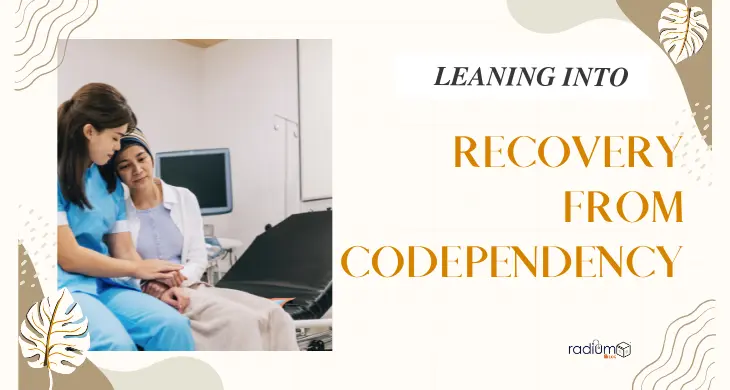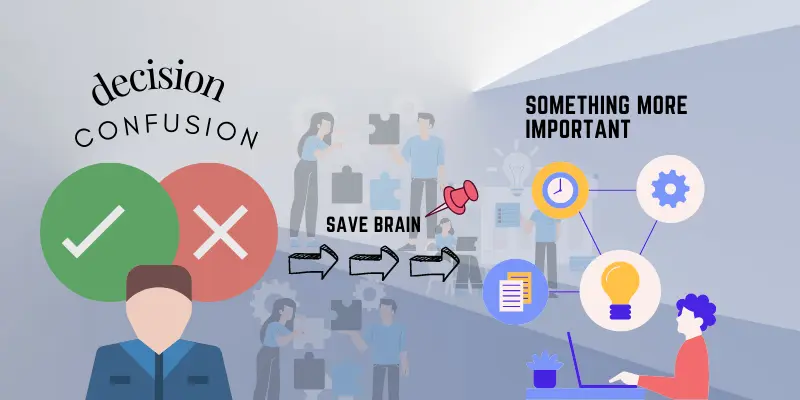Codependency, a relational pattern often characterized by excessive reliance on others for a sense of self-worth, can profoundly impact one’s life and relationships. This journey of recovery isn’t just about breaking unhealthy dependencies; it’s a transformative process that involves rediscovering personal strength, setting healthy boundaries, and nurturing one’s well-being.
In this exploration, we’ll delve into the intricate process of recovering from codependency, focusing on self-growth, fostering autonomy, establishing boundaries, seeking supportive connections, and reclaiming independence. By leaning into this journey, individuals can navigate towards healthier relationships, self-empowerment, and a renewed sense of emotional freedom. Join us on this path of healing and discovery as we unravel the steps towards breaking free from codependency and embracing a life founded on self-compassion and personal resilience.
Understanding Codependency:
Codependency is a complex behavioral and emotional condition that often manifests in relationships, characterized by a deep reliance on others for validation, self-worth, and identity. Here’s a breakdown:
Characteristics of Codependency:
Excessive Caretaking:
- Codependent individuals often feel an overwhelming need to care for others, sometimes to the detriment of their own needs.
- They might assume the role of a caretaker or rescuer, enabling dependency in others while neglecting their own well-being.
Low Self-Esteem:
- Codependent individuals frequently struggle with feelings of inadequacy, often seeking validation and approval from others to bolster their self-worth.
- They might base their self-esteem on how much they can do for others or how others perceive them.
Control Issues:
- Seeking to control situations or others is common in codependency, often stemming from a desire to manage and fix problems in relationships.
Causes and Triggers:
Childhood Dynamics:
- Codependency often has roots in dysfunctional family dynamics, where there might have been addiction, neglect, or emotional trauma.
- Growing up in an environment where emotions and needs were ignored or invalidated can contribute to codependent tendencies.
Learned Behavior:
- Some individuals learn codependent behaviors from observing and adapting to the dynamics of their caregivers or role models.
Traumatic Experiences:
- Traumatic experiences, including abuse or significant loss, can contribute to the development of codependent traits as coping mechanisms.
Embracing Self-Exploration:
Embracing self-exploration is a foundational step in the journey toward understanding and overcoming codependency. This process involves:
Self-Awareness:
- Reflecting on personal thoughts, emotions, and behaviors to recognize patterns linked to codependency.
- Exploring past experiences and their impact on current relationships and self-perception.
Identifying Codependent Behaviors:
- Acknowledging behaviors such as excessive caretaking, people-pleasing, difficulty setting boundaries, and fear of rejection.
- Understanding how these behaviors influence relationships and well-being.
Understanding Triggers:
- Examining situations or emotions that trigger codependent tendencies.
- Recognizing patterns of enabling or dependence in relationships and their root causes.
Challenging Beliefs and Assumptions:
- Questioning and challenging ingrained beliefs about self-worth, relationships, and the need for validation from others.
- Rethinking perceptions about personal strengths and autonomy.
Cultivating Self-Compassion:
- Practicing self-kindness and understanding, acknowledging that change is a process and not an immediate outcome.
- Accepting imperfections and embracing personal growth with patience.
Establishing Healthy Boundaries:
Establishing healthy boundaries is a fundamental aspect of recovering from codependency and fostering healthier relationships. Here’s how to navigate this crucial process:
Identifying Boundary Issues:
- Recognize patterns where you struggle to say “no,” feel guilty for setting limits, or allow others to cross your personal boundaries.
Clarifying Your Limits:
- Clearly define your emotional, physical, and relational boundaries. Identify what makes you comfortable or uncomfortable in various situations or relationships.
Assertiveness and Communication:
- Practice assertive communication to express your needs and set boundaries without feeling guilty or aggressive. Use “I” statements to express yourself calmly and directly.
Consistency and Firmness:
- Maintain consistency in upholding your boundaries. Be firm in enforcing them, even when faced with resistance or pushback from others.
Fostering Self-Care and Self-Compassion:
Fostering self-care and self-compassion is crucial in the journey of recovering from codependency. Here’s how to prioritize self-care and cultivate self-compassion:
Understanding Self-Care:
- Recognize that self-care isn’t selfish; it’s a necessity for overall well-being.
Identifying Self-Care Activities:
- This might include exercise, hobbies, meditation, spending time in nature, or simply resting.
Setting Aside Time for Self-Care:
- Make self-care a priority by scheduling specific time for it in your routine.
Practicing Mindfulness:
- Engage in mindfulness practices like meditation or deep breathing exercises to stay present and reduce stress. Mindfulness can enhance self-awareness and self-compassion.
Nurturing Healthy Habits:
- Prioritize healthy habits such as adequate sleep, balanced nutrition, regular exercise, and seeking medical care when needed.
Continued Growth and Maintenance:
Continued growth and maintenance are essential in the ongoing journey of recovery from codependency. Here are strategies to sustain progress and foster ongoing personal development:
Regular Self-Assessment:
- Periodically assess your progress and reflect on areas where you’ve grown and where you might still face challenges. Self-reflection is crucial for continued growth.
Therapy and Support Groups:
- Consider ongoing therapy or participation in support groups to maintain momentum in your recovery. Continuing support can offer new insights and reinforce positive changes.
Mindfulness Practices:
- Integrate mindfulness practices into your daily routine to stay present, manage stress, and maintain self-awareness. This can prevent slipping into old patterns.
Consistent Boundaries:
- Uphold the healthy boundaries you’ve established. Regularly revisit and reinforce them as necessary to maintain respectful and balanced relationships.
Learning and Education:
- Continue learning about codependency, personal growth, and healthy relationships. Reading, attending workshops, or listening to podcasts can provide ongoing insights.
Accountability and Feedback:
- Seek feedback from trusted individuals about your progress. Having someone to hold you accountable can be beneficial.
Frequently Asked Questions:
1. What is codependency, and how does it impact relationships?
Codependency involves excessive reliance on others for a sense of self-worth, often leading to unhealthy relationship dynamics characterized by enabling, caretaking, and a lack of personal boundaries. It can impact relationships by fostering dependency and hindering individual growth.
2. What are some common signs or behaviors indicating codependency in relationships?
Signs include people-pleasing tendencies, fear of conflict or rejection, sacrificing personal needs for others, low self-esteem, and difficulty in setting boundaries.
3. How can one begin the process of recognizing and acknowledging their own codependent behaviors?
Self-reflection, therapy or counseling, and seeking information about codependency can help in recognizing and acknowledging these behaviors.
4. What steps can individuals take to set healthy boundaries in relationships while recovering from codependency?
Learning assertiveness, practicing self-care, identifying personal limits, and communicating needs effectively are crucial in establishing and maintaining healthy boundaries.
5. Is professional help necessary for overcoming codependency, and what are the available options?
Professional help, such as therapy, counseling, support groups, or workshops, can provide valuable tools and guidance in overcoming codependency.
Conclusion:
In this journey, individuals discover the power of setting boundaries, nurturing self-care practices, and seeking support from communities or professionals. They learn to recognize codependent behaviors, replacing them with healthier and more fulfilling ways of engaging in relationships.
Recovery from codependency isn’t a linear path; it involves ups and downs, setbacks, and breakthroughs. It requires patience, self-compassion, and a willingness to face challenges while celebrating victories along the way. As individuals lean into recovery, they discover the joy of reclaiming personal autonomy, fostering healthy relationships built on mutual respect, and rediscovering their sense of self-worth. They embrace a life that prioritizes self-care, healthy boundaries, and the freedom to live authentically.
Remember, recovery is an ongoing process, and each step forward, no matter how small, contributes to a more fulfilling and empowered life. By embracing growth, setting boundaries, nurturing self-compassion, and seeking support, individuals embark on a journey toward healing, empowerment, and a renewed sense of well-being.




